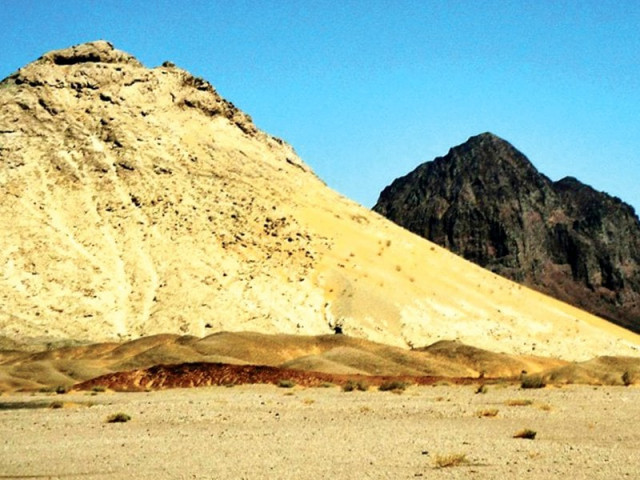Balochistan should make its own mineral law: SC
Says Centre can exercise powers over provincial law or machinery but provinces cannot do the same

The Supreme Court while hearing the presidential reference on Reko Diq project said that the Balochistan government should make its own law related to minerals, noting that legislation can be done in a week’s time.
A five-member larger bench of the apex court led by Chief Justice Umar Ata Bandial heard the reference on Thursday
President Arif Alvi, on the advice of Prime Minister Shehbaz Sharif, had filed the reference to seek the apex court’s opinion on the Reko Diq out-of-court settlement deal.
The federal government, through the reference, had posed two questions seeking the apex court’s opinion under Article 186 of the Constitution.
The first question is whether or not the SC 2013 judgment had prevented the federal and Balochistan governments from entering into an implementation and definitive agreements or affected their validity.
It also asked the SC if enacted, would the proposed Foreign Investment (Protection and Promotion) Bill, 2022, be valid and constitutional.
Earlier, the additional attorney general had told the Supreme Court that Barrick Gold Corporation’s previous licence for mining gold in the Reqo Diq area had been cancelled and it would now be given a new one.
During the hearing on Thursday, Justice Munib Akhtar asked how Balochistan could amend the Minerals Act of the federation.
The judge said that the Centre could exercise powers over provincial law or machinery but the provinces cannot do the same.
Justice Yahya Khan Afridi sought legislation in the Reko Diq case, saying the matter of public interest should be kept in focus.
The counsel for Balochistan government said that the provincial assembly could legislate on the issue of Reko Diq agreement.
Justice Akhtar said the government wanted the court to interpret the Constitution in its “preferred way”, adding that the rest of the provinces should also enact law like Khyber-Pakhtunkhwa’s “free law on minerals”.
Justice Jamal Khan Mandokhel remarked that the Balochistan government should formulate its own law related to minerals, noting that legislation could be done in a week’s time.
What more clear opinion can the court give? he asked.
The Balochistan government lawyer said he would further adopt the arguments of the additional attorney general on the matter.
On the completion of arguments by the Balochistan government’s counsel, amicus curiae Farogh Naseem said that the court can suggest that the Balochistan Assembly legislate on the Reko Diq project.
He said the issue could be resolved if Balochistan enacts its own Minerals Act.
Later, the hearing of the case was adjourned till November 21.



1725254039-0/Untitled-design-(24)1725254039-0-208x130.webp)















COMMENTS
Comments are moderated and generally will be posted if they are on-topic and not abusive.
For more information, please see our Comments FAQ